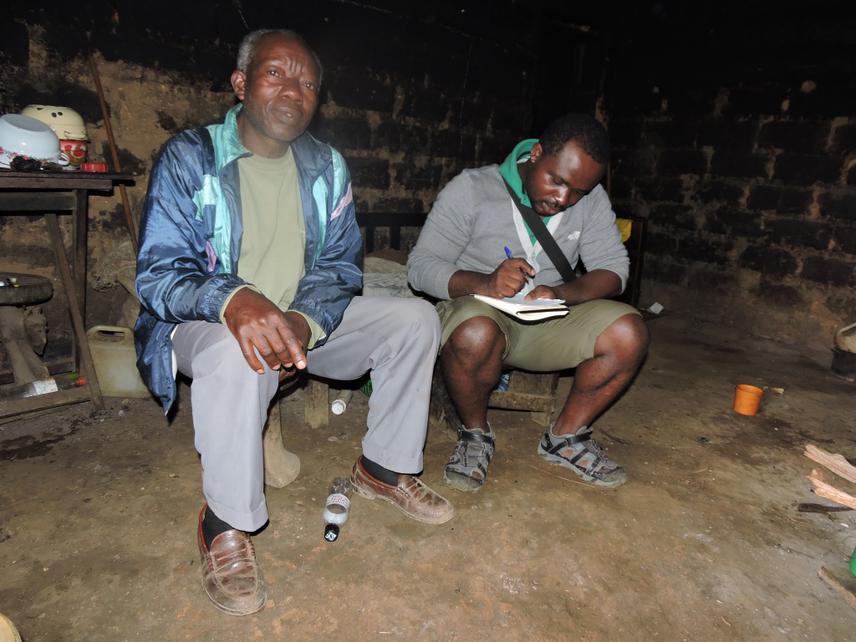Mbunya Francis Nkemnyi
Other projects
23 Jul 2014
Enabling Sustainable Great Apes Conservation in the Tofala Hill Wildlife Sanctuary (THWS)
30 Mar 2016
Building Local Leadership on Policy Oriented Research in the Cross River Gorilla Landscape in Cameroon
The project addresses two intertwined challenges of great apes conservation and rural poverty in the Proposed Tofala Hill Wildlife Sanctuary, Southwest Cameroon.

Principal investigator during an interview in Fossimondi.
Making the environment-development nexus in practice requires greater emphasis on diverging values and diverging preferences for scale of operation and action. Communities directly interfacing with natural resources in developing countries are largely small-holder farmers faced by poor households, and their response, depend fundamentally on many factors beyond their control. In this line, this research is geared toward facilitating innovations that aim at improving great apes conservation in line with food security, livelihoods enhancement and collaboration between conservationists and policy maker in Western Cameroon with particular interest in the Proposed Tofala Hill Wildlife Sanctuary (THWS). The THWS is located in the Lebialem-Mone Forest Landscape, Southwest Region of Cameroon and covers approximately 15000 hectares. It is home to 26 species of large mammals including the critically endangered Cross River gorillas and the endangered Nigeria-Cameroon chimpanzees.
The project will involved a use of mixed methods: a preliminary phase of collective research to prepare quickly the subsequent teamwork by identifying in summary the main local issues and thus making it possible to predetermine the main strategic groups, critical system thinking (CST) approach for stakeholder analysis, the sustainable livelihood approach to wildlife conservation for households livelihood surveys, institutional analysis for assessing the role of local institution in great apes conservation and the participatory workshops for scenarios analysis. At the end of this study, we expect to obtain detailed empirical knowledge that contributes to the understanding and addressing livelihood questions, generating insights on the impact of the project and identifying key factors connecting livelihoods and the reproduction of the THWS, allowing us to address scenarios and management issues which will bring to play social justice and contribute to scientific knowledge with the following output expected:
(i) Develop a livelihood implementation framework for the THWS
(ii) Suggest and advice policies that will contribute to successful livelihood and conservation implementation
(iii) Develop manuscripts, publications and policy briefs that will contribute to solutions in meeting challenges facing environment-development interventions